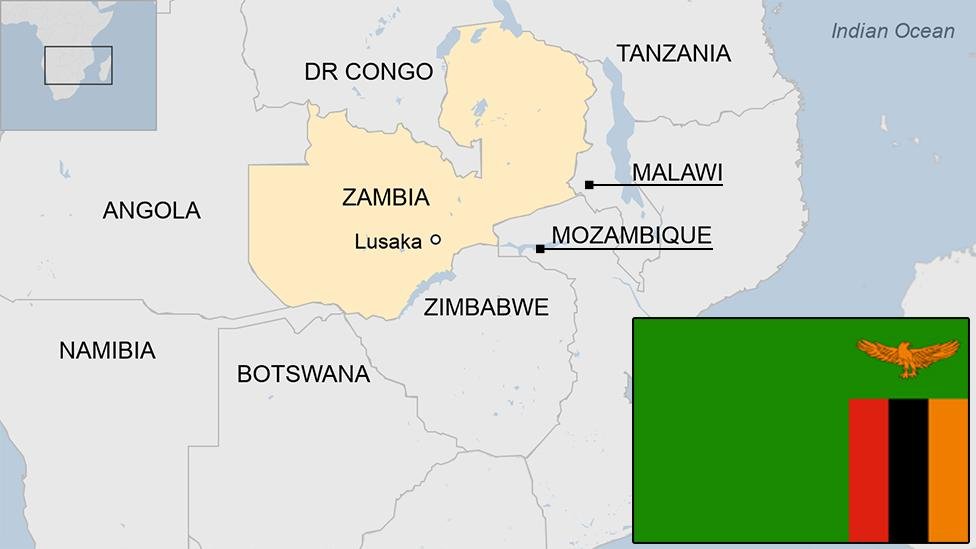In the heart of Southern Africa lies a country with a rich tapestry of culture, landscapes, and potential – Zambia. With its vast reserves of natural resources and a growing industrial sector, Zambia’s economic standing is a topic of great interest and scrutiny. Join us as we delve into a comprehensive ranking of Zambia’s economic performance and discover the factors that shape its position on the global stage. From copper mines to tourism, let’s explore the intricacies of Zambia’s economy and its place in the world.
Current Economic Indicators and Trends in Zambia
Zambia’s economic indicators and trends are crucial in understanding the current state of the country’s economy. One of the key indicators is the GDP growth rate, which reflects the overall health and growth of the economy. In recent years, Zambia’s GDP growth has been showing a positive trend, indicating potential economic stability and development.
Another important indicator to consider is inflation rate, which measures the rate at which prices for goods and services rise. Zambia has been facing inflationary pressures due to various factors such as currency fluctuations and global market trends. Additionally, the country’s unemployment rate is a significant trend to follow as it impacts the overall well-being of the population and consumer spending habits. Zambia has been taking steps to address unemployment issues through various initiatives and programs aimed at creating job opportunities for its citizens.
Key Challenges Impeding Economic Growth in Zambia
When examining the economic landscape of Zambia, it becomes evident that several key challenges are hindering its growth potential. One major obstacle is the country’s heavy reliance on copper exports, making it vulnerable to fluctuations in global commodity prices. This lack of diversification leaves the economy exposed to external shocks, impacting overall stability and growth.
Additionally, inadequate infrastructure development, particularly in the energy sector, poses a significant barrier to economic progress. Insufficient access to reliable electricity hampers productivity and investment opportunities, limiting the country’s ability to attract foreign capital and foster sustainable growth. Addressing these challenges is crucial for Zambia to enhance its economic standing and unlock its full potential for development.
Strategies to Enhance Zambia’s Economic Competitiveness
In order to improve Zambia’s economic competitiveness on the global stage, it is crucial to implement a series of strategic measures that target key areas of growth and development. One strategy that can enhance Zambia’s economic standing is to invest in infrastructure projects that promote connectivity and trade. By improving transportation networks, such as roads and railways, Zambia can facilitate the movement of goods and services both domestically and internationally.
Another important strategy is to focus on developing the country’s human capital through investments in education and skills training. By providing access to quality education and vocational training programs, Zambia can create a skilled workforce that is capable of driving innovation and productivity in various industries. Additionally, promoting entrepreneurship and small business development can help stimulate economic growth and create opportunities for job creation.
Improving Investment Climate and Infrastructure in Zambia
Zambia has made significant strides in improving its investment climate and infrastructure, positioning itself as an attractive destination for investments. The government’s commitment to implementing reforms and enhancing transparency has been instrumental in creating a conducive environment for businesses to thrive. With a focus on streamlining processes, reducing red tape, and promoting public-private partnerships, Zambia is paving the way for sustainable economic growth.
Investments in infrastructure development have played a crucial role in driving Zambia’s economic progress. From road networks to energy projects, the country has been investing in key sectors to enhance connectivity and stimulate growth. By prioritizing infrastructure development, Zambia is not only improving the quality of life for its citizens but also laying the foundation for long-term economic prosperity. With a strategic approach to infrastructure investment, Zambia is poised to further enhance its economic standing on the global stage.
In Summary
Zambia’s economic standing is a complex and multifaceted issue that requires careful consideration and analysis. By examining various ranking factors, we can gain a better understanding of the challenges and opportunities facing this African nation. It is clear that there is much work to be done to improve Zambia’s economic prospects, but with dedication, innovation, and collaboration, there is hope for a brighter future ahead. Let us continue to monitor and support Zambia in its efforts to strengthen its economy and enhance the well-being of its people.



